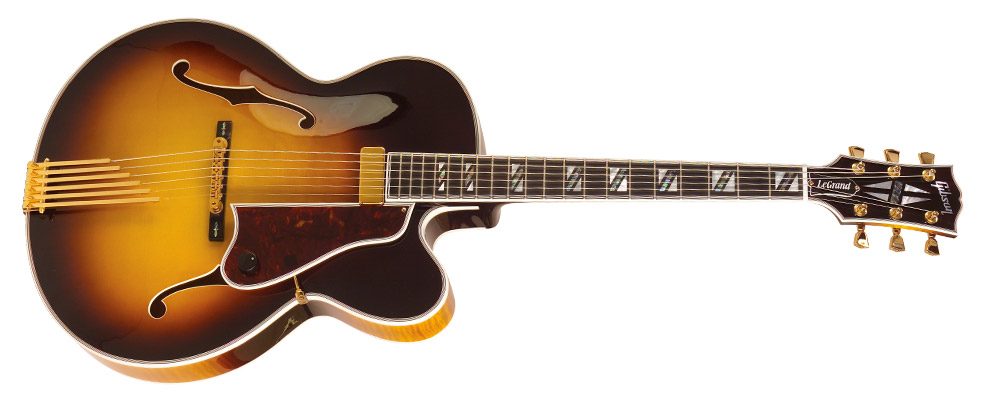Humbucked: The Decline of Gibson
by Justin Boden
After 116 years of mandolin, acoustic and electric guitar production Gibson Brands has announced that they are facing bankruptcy should they not be able to come up with millions of dollars in cash payments due in July. After only being with Gibson for a year, the company’s CFO, Bill Lawrence, stepped down, and quite frankly, it’s not looking like Gibson will be able to make the payments.
What happened? How did a multi-million juggernaut of the music industry find itself in such a situation and what does it mean for the rest of the industry fighting for valuable and seemingly shrinking market space? That depends on who you ask, because consumers have one take and, well, Gibson executives have a completely different idea as to who is to blame for Gibson’s demise. No matter who the blame gets pushed to, changes need to be made in order for Gibson to renew consumer confidence, as well as right the ship financially.
Gibson Archtop. Photo Courtesy of Gibson Brands.
Founded in 1902, Gibson first found success making mandolins and shortly thereafter adopted acoustic guitars into their repertoire. They even invented the archtop-styled guitar as well as many other innovations that helped the company grow.
For nearly 50 years Gibson continued to rise and in 1952 introduced the now legendary Les Paul guitar. Stacked with two P-90 pickups and an oft-copied "gold top", the Les Paul was originally considered a flop and temporarily shelved for the SG model made famous by riff-masters AC/DC, and shredders like Black Sabbath’s Tony Iommi. However, it was brought back in the 1960s and found tremendous success now being considered one of the most classic electric guitars in existence.
Gibson SG
Gibson Les Paul Gold Top
Rock & Roll music was blossoming and consumer interest in guitars was on fire. Guitar gods like Eric Clapton, Jimmy Page, and Jimi Hendrix were cultural icons convincing an entire generation that guitar was the epitome of cool. The music industry had never been bigger and Gibson was riding shotgun to only Fender as the largest guitar manufacturer in the world. Gibson continued their reign through the ’90s and into the early 2000s until a series of missteps, the decline of Rock & Roll music, and the internet hit the company’s financials and continue to chip away at sales today.
The missteps that Gibson found themselves taking surrounded around the Lacey Act, a conservation law that is meant to protect the environment by prohibiting the trade of natural goods, like wood, that has been illegally procured. In both 2009 and 2011, Gibson was raided by federal authorities and charged with possession of illegally obtained Madagascar ebony and Indian rosewood. While Gibson initially denied the accusations and even claimed that they were being bullied by the government, eventually they entered into a Criminal Enforcement Agreement and were fined $350,000 and flushed countless dollars down the drain on attorney’s fees as well.
It’s no secret that Rock & Roll has been virtually shelved by music tastemakers today. While there are still some exceptions (The Black Keys & Foo Fighters as examples), long gone are the days of bands lead by electric guitar players charging to the top of the charts and paving the way for every kid to hope a guitar is under the tree on Christmas. The ease and access of electronic music and the fact that nearly every home already has a computer has those wanting to make music smashing keys and steering their attention to music production instead of guitar scales and chords.
Guitar sales aren’t just down, they’ve been steadily declining for over a decade now seeing annual units sold shrinking by 33%. Everyone in the industry is feeling it from manufacturers like Gibson and Fender (also in debt) to Guitar Center who has recently seen their credit rating dropped by Moody’s as they amass $1.6 Billion in debt. Baby boomers, those most heavily invested in guitars are retiring, shedding their collections as they downsize and adjust to fixed incomes instead of buying more, and without the aforementioned guitar heroes in today’s music space, young consumers aren’t replacing those baby boomer dollars.
Consumers have also changed the way they shop foregoing brick and mortar stores and instead, shopping in the comfort of their own home online. Amazon.com is now the 2nd largest employer in the United States and continues to grow and according to Gibson’s CEO, Henry Juszkiewicz, small retailers haven’t done enough to stay relevant losing market share to online stores like Amazon and Sweetwater.com. Instead of jumping at online sales, guitar retailers have instead shied away from it failing to see the value years before and now it may be too late Juszkiewicz believes.
This has lead to consumers that do still spend money on guitars being able to select from more options by guitar manufacturers they couldn’t previously find at their local music shop and weren’t aware of prior to the internet. Shops who are often tied to minimum volume expectations by large manufacturers like Gibson and simply cannot carry as much variety while meeting every manufacturer's minimums. This is also why you may go into many local shops and notice that there isn’t a single Gibson being carried at all - they simply can’t push enough Gibson guitars out the door.
Gibson’s incredibly high price point and a perceived lack of quality control have also caused consumers to shy away from Gibson as a brand. Do a quick Google search about Gibson quality over the years and you’ll find a slew of forums, videos, and articles stating that they simply don’t have the same quality control metrics and are shipping out more and more poorly made guitars. Consumers are smarter than ever, doing research and reading about products before making purchases so when public opinion starts heavily leaning towards the idea that Gibson makes poor products, they listen and their money follows suit.
Photo Courtesy of Gibson Brands.
With all these reasons stacked together, Gibson is reeling and it's not looking good, but is it the end of Gibson as a brand outright? Probably not, as they still have a few options. Gibson is already selling their Baldwin piano line and closed the doors on their Nashville production facility in an attempt to free up cash and cut down on costs. They’ve also hired investment bank Jeffries to assist in turning things around. Add to that a change in focus going towards the consumer audio business, Philips and the possibility of Gibson exchanging company equity directly for decreased debt and it's possible that they can maintain a financial status that keeps them out of entering bankruptcy. Even if the company cannot and they are forced into bankruptcy, another company will surely see the value in a brand that has become a part of American culture, nostalgia, and history and scoops up the brand.
Gibson’s name alone has tremendous value, but it won’t keep a ship full of holes afloat alone. Whether we’re witnessing the death gasp of Gibson as we currently know it or not is something that will become clearer as July approaches, but it certainly is a sign of the modern-era as everyone in the guitar industry feels the pinch and pain.





